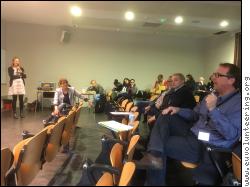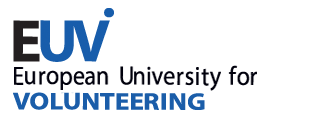SessionsEUV 2016  Following successful Assemblies in Spain, France, Switzerland, Germany and The Netherlands that were established more than 20 years ago, the European University of Volunteering is coming to Strasbourg (Alsace), where it will convene its 8th Convention from 5th to 8th October, 2016. On this occasion the official Theme will cover the multiple digital networks that have sprung up under the all-encompassing label “social media”. Their role in social relationships, in social work and voluntary work will be the subject of dialogue. Most of us can attest to what extent our interpersonal relationships have been impacted by web2.0 since the end of the 20th century – in the every-day workplace, in private life or in voluntary service. Platforms like Facebook can connect a billion people per day, and YouTube plays more than 300 hours of video per minute; so we acknowledge that “newfangled” ideas rapidly become passé. New methods of connecting individuals are burgeoning and suddenly become the new norm. The volunteer work arena seeks to adopt such new, technical realities to vastly expand its potential outreach. “Cybervolunteering”, a platform for the exchange of services and experience at the local as well as worldwide level. Thus, globalization of voluntary work is not just simple economics, but rather a wholly new way of networking. The challenges posed by the communications revolution will be addressed by The European University of Volunteering in its 8th Convention, which invites you to an exciting interexchange of information under the heading: “Social Work and Voluntary Service Communications in the Digital Age” PublicPublic announcements and invitations are addressed to three different interest groups. Each group is invited to exchange ideas and impressions internally as well as among the other two interest groups. Academics and students at universities and institutes of higher learning may present their scientific research results in an international discussion forum. The opportunity is available to research specifics across six axes of digital social networking: Law, security and ethics, economics, public and political communication, internal communication, non-usage, and language and culture.
Without expecting miracles from digital innovations or looking nostalgically back to “my days, when everything was better”, the main goal of the 8th Convention of European Volunteering will be to explore the effects of the digital communications revolution on voluntarism and to establish a more solid foundation for social work – and to evaluate social connectivity among volunteers generally. The organisers want this Convention to address and devise solutions for existing problems in the diverse environments of France, Germany, other European countries and the wider world. The conference languages will be English, French and German. The first day will be open to the public at large, to which politicians are invited. Lectures and talks will probe the subject matter using sample problem situations. Days two and three will feature an academics and student interchange on the one hand and examine professionals’ and volunteers’ experiences on the other. Day four will again be open to the public. Various local, regional and international institutions as well as the European Parliament, the Council of Europe, the regional ALCA, the Département du Bas-Rhin and the European capital cities’ representatives have been extended a cordial invitation to participate. We kindly request applicants to respond to this “Call for Papers” by 31/03/2016.
Further particulars and forms for submitting suggestions maybe downloaded from the websites: www.euvolunteering.org and www.iave.org. Organizers
The 8th convention of the European University of Volunteering stands under the patronage of the European Parliament; Martin Schulz, President of the European Parliament, is Patron. To download this file: report_uev2016strasbourg.pdf (200.5K) |

